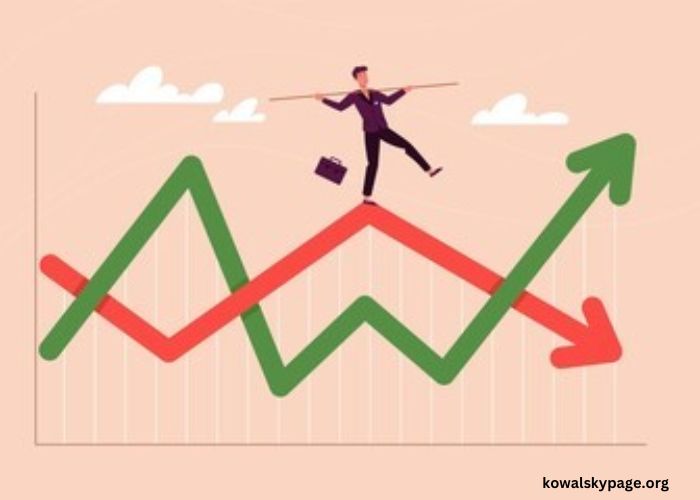In the ever-evolving landscape of the business world, companies are facing an increasing number of complex challenges. From rapid technological advancements to heightened customer expectations, business leaders must adapt to stay competitive. The good news is that modern technology offers a wealth of innovative solutions to address these challenges effectively. In this article, we’ll explore some of the most impactful tech solutions shaping today’s business environment and how they’re helping companies thrive.
1. Artificial Intelligence (AI) and Machine Learning (ML)
AI and machine learning have become game-changers for businesses across various industries. These technologies are being deployed to automate routine tasks, enhance decision-making, and predict future trends. By processing vast amounts of data quickly and accurately, AI systems enable businesses to optimize operations, reduce human error, and increase efficiency.
For example, AI-powered chatbots are helping businesses improve customer service by providing instant responses to customer inquiries, while machine learning algorithms enable predictive analytics, allowing companies to anticipate consumer behavior and trends. These capabilities not only enhance productivity but also create a more personalized and responsive customer experience.
2. Cloud Computing and Hybrid Solutions
The shift to cloud computing has been one of the most significant transformations in recent years. Cloud solutions allow businesses to store, access, and share data remotely, making it easier to collaborate across geographic locations. Cloud-based systems also enable companies to scale their operations quickly and cost-effectively.
Hybrid cloud solutions, which combine public and private cloud services, are especially beneficial for businesses that need a combination of flexibility, security, and control. They allow companies to maintain sensitive data in private environments while leveraging the scalability and cost-effectiveness of public cloud infrastructure for other operations. This flexibility makes cloud solutions a powerful tool for modern businesses.
3. Blockchain Technology for Transparency and Security
Blockchain, the technology that underpins cryptocurrencies like Bitcoin, is gaining traction in a wide range of business applications. At its core, blockchain is a decentralized, distributed ledger that allows for secure, transparent, and immutable transactions.
In industries like finance, supply chain management, and healthcare, blockchain is providing innovative solutions for reducing fraud, enhancing transparency, and improving data integrity. For example, in supply chain management, blockchain can trace the origin of products, ensuring authenticity and ethical sourcing. In finance, blockchain can streamline payment systems and reduce the risk of cyber threats. Its decentralized nature makes it highly secure, which is crucial for industries where trust and data protection are paramount.
4. Internet of Things (IoT) for Smart Operations
The Internet of Things (IoT) refers to the network of interconnected devices that communicate with one another through the internet. IoT is revolutionizing how businesses collect and analyze data, enabling real-time monitoring, automation, and efficiency improvements.
For example, in manufacturing, IoT-enabled sensors can track machinery performance and predict maintenance needs, reducing downtime and increasing productivity. In retail, IoT allows businesses to track inventory in real time and manage supply chains more efficiently. The ability to access data instantly and make informed decisions on the spot enhances operational effectiveness and enables businesses to become more agile and responsive.
5. Robotic Process Automation (RPA) for Efficiency
Robotic Process Automation (RPA) refers to the use of software robots to automate repetitive and rule-based tasks. By leveraging RPA, businesses can free up human workers from mundane administrative tasks and allow them to focus on higher-value activities, like strategic planning and innovation.
In sectors like finance, HR, and customer service, RPA is being used to streamline processes such as invoice processing, employee onboarding, and customer query management. This leads to faster turnaround times, fewer errors, and significant cost savings. RPA is also highly scalable, allowing businesses to handle increased workloads without the need for additional human resources.
6. Data Analytics and Big Data Solutions
Data is often referred to as the new oil, and for good reason—when analyzed correctly, data can provide businesses with critical insights into customer preferences, market trends, and operational efficiencies. Big data solutions, including advanced data analytics platforms, help organizations process large volumes of data to uncover patterns and trends that were previously difficult to detect.
Business leaders are using these insights to make more informed decisions, improve customer targeting, and optimize their products or services. For example, e-commerce platforms can leverage data analytics to recommend personalized products to users based on their browsing history and purchasing behavior. In healthcare, data-driven insights can assist in diagnosing diseases and predicting patient outcomes.
7. Cybersecurity Solutions for Protection Against Threats
As businesses digitize their operations, cybersecurity has become more critical than ever. With the rise in cyberattacks and data breaches, businesses need to invest in robust cybersecurity measures to protect sensitive data and ensure business continuity.
Innovative cybersecurity technologies such as advanced encryption, multi-factor authentication, and AI-driven threat detection systems are helping businesses secure their networks and data. AI-powered cybersecurity tools are particularly effective in identifying and responding to threats in real-time, providing an added layer of protection against evolving cyber risks.
8. 5G Technology for Enhanced Connectivity
The rollout of 5G technology is set to further revolutionize how businesses operate. With faster speeds, lower latency, and greater bandwidth, 5G promises to enable more reliable and efficient communication across networks.
For industries such as healthcare, 5G enables telemedicine and remote surgeries, while in manufacturing, it supports smart factories and enhanced automation. Additionally, 5G’s ability to handle large volumes of connected devices will accelerate the growth of IoT applications, further driving innovation in various sectors.
Conclusion
In today’s fast-paced business environment, leveraging innovative tech solutions is no longer just a competitive advantage—it’s a necessity for survival. From AI and machine learning to blockchain, cloud computing, and IoT, businesses are harnessing the power of technology to address complex challenges, improve operational efficiency, and deliver better customer experiences.
As technology continues to evolve, businesses that remain agile and invest in the latest innovations will be best positioned to navigate the complexities of the modern business landscape and achieve long-term success.





